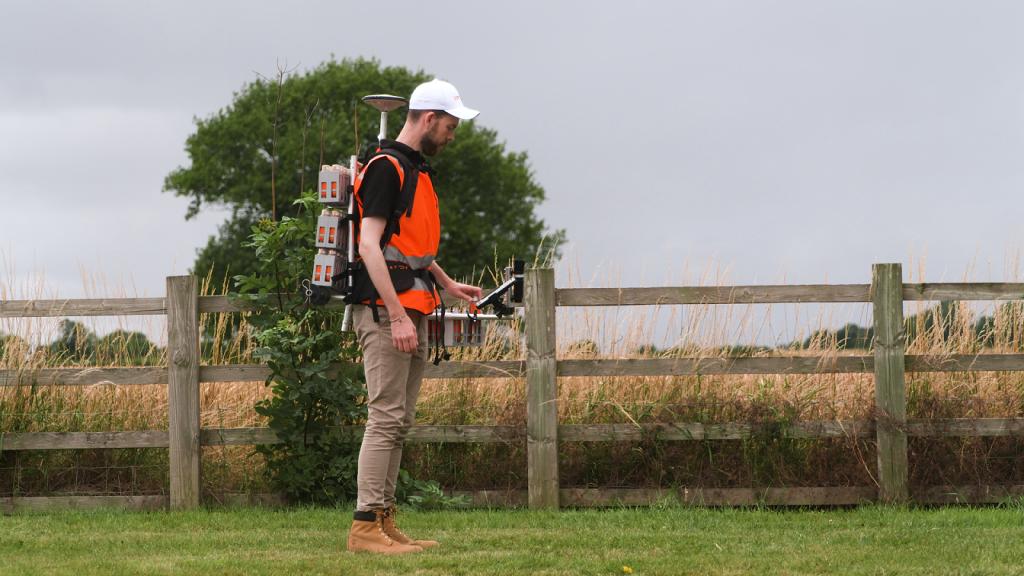Seismic nodes deployed to evaluate geothermal heating at RAF Leeming, UK
STRYDE and Newcastle University are collaborating on a seismic survey to assess the potential of geothermal heating at RAF Leeming in the UK.
With the Ministry of Defense accounting for about 50% of all government departmental carbon emissions in the UK, the Royal Air Force (RAF) faces a significant challenge in achieving their 2040 Net Zero goals. To this end, a partnership between the Newcastle University and STRYDE have deployed the technology to assess geothermal heating at the RAF Leeming station.
Newcastle University leads the ViTAL Living Lab, established to conduct and assess experiments to quantify RAF efforts to Net Zero carbon emissions. As part of the ViTAL Living Lab project, approx. 3,500 STRYDE Nodes™ have been deployed across more than 5km2 to image and better understand the subsurface geology.
The project, that took place from June – August 2022, deployed miniature seismic recording devices (Nodes) on the surface of RAF Leeming, with subsequently a low-impact seismic source (seismic weight drop) used to generate a geological image of the subsurface to be produced. With this technology, high-density and high-fidelity data acquisition can be made financially viable, especially in areas where traditional cabled geophones, or larger nodal devices would have been impractical or too disruptive to the surrounding environment.
By continuously recording the data, STRYDE Nodes™ were able to successfully acquire 28 days of passive seismic and 1,500 shot points, allowing Newcastle University to process a conventional reflection survey and compare the passive seismic results against a simultaneous active source survey.
STRYDE’s solutions have made this type of essential high-quality, high-density seismic imaging possible. Enabled by both the product design and the reduced price-point of the technology, STRYDE Nodes™ passes on significant CAPEX and OPEX savings ranging from logistics savings to transportation, demobilisation, and equipment cost reductions, while still offering a high-definition image uplift. The simplicity of the system allowed for the 3,500 nodes to be deployed by non-expert, teams of students in under 2 weeks.
Non-oil and gas industries such as geothermal, mining, and CCUS, as well as interested organisations including universities and research institutes like Newcastle University, require a deep understanding of the ground beneath our feet to de-risk new energy projects and helping companies make more informed decisions where there is geological risk.
By offering solutions such as this, STRYDE can effectively support the world’s transition into more sustainable, regenerative fuel sources.
“Advances in onshore seismic acquisition and processing can support an acceleration in the development of geothermal energy, which to date has been an under-developed resource. To harness this resource, geophysical data will be vital for establishing reliable subsurface models for exploration and monitoring. This survey has been designed specifically for data suitable for geothermal exploration.” said Chris Einchcomb, Geophysical Consultant at STRYDE.
“The acquired joint data will enable Newcastle University to investigate how to effectively use two or more data sets to identify body- and surface-wave arrivals. The aim is to use the data to distinguish the velocity and subsurface structure and nature of acquirers of the study area.” added Chris.
“We are thrilled to be working with Newcastle University and the University’s partner STRYDE on the ViTAL Living Lab as part of our drive to Net Zero. With the RAF’s ambitious target of Net Zero by 2040, this recent survey will provide key information to help us understand if and how geothermal energy can be figured into our plans to decarbonise the RAF’s estate. It may also lead to greater understanding of how we build a more resilient and sovereign energy source for our facilities.” commented RAF Leeming Station Commander, Group Captain Gareth Prendergast.
We have previously published an interview with STRYDE CEO Mike Popham, where he talks about seismic studies and how they are critical for geothermal exploration.
Source: STRYDE


















